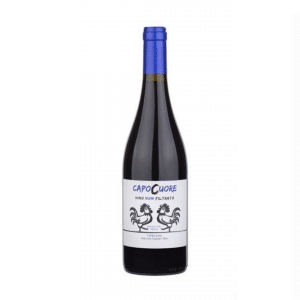
Natural Wine, how many times have you heard of it, but what is it?
Did you know that three out of four wine lovers are turning decisively towards Natural Wine?
In this article I will dispel doubts and clichés, and tell you about the 5 reasons why the Natural Wine is not only the best for you, who expect to drink well, but also for the environment.
Let's go step by step, first I will explain what is meant by this type of wine.
In my years as an export manager of natural wine in the US, I have really realised how the authenticity of the product makes the difference in terms of market appeal.
This in fact is now oriented towards the search for products from small-scale production, with a totally sustainable approach in the vineyard. Horrified by pesticides, to irrigations (often aimed at removing the chemistry) or to polyphenolic concentrations in the 80s (the classic impenetrable colour). Appreciate the unconditional love in the cellar routine.
Natural Wine
Let's make it clear right away that natural wine is a fitting definition for a wine that is the result of a sustainable approach to viticulture, one that respects the environment in which the vines are raised and does not involve adulteration during the winemaking process.
Natural wine does not exist objectively. Due to the simple fact that even a small part of the grapes are manipulated, it would be better to define it as a naturally produced wine.
What is the source of this naturalness? Fashion, say the detractors. Ignoring, however, how much harder and more disadvantageous it is for a winemaker to produce in this way rather than through the use of machinery or the purchase of selected yeasts.
Who makes them do it then? Respect for the environment and for you buying their wine is a good starting point, don't you think? The desire to produce a great wine is certainly the goal.
Approach to viticulture
In order to produce naturally, you must not use chemicals in the vineyard, even if you produce in a very humid area. You can use copper sulphate under 4 kg per hectare per year.
In reality the trend is to abandon copper sulphate as well and intervene in an even less invasive way. On my visits to natural wine cellars I notice increasingly interesting solutions such as the use of lactic acid bacteria, products derived from oranges or tannin from wood.
I pesticides, or plant protection products, (insecticides, herbicides, fungicides, etc) are linked to hematological cancers and damage to the central nervous system and liver, can cause poisoning. No kidding.
According to the WHO are over 26 million cases of pesticide poisoningof which about 260000 culminate in death.
Unfortunately, I'm not finished. pesticides they're endocrine disruptors, they don't just cause harmful effects to you, they cause harmful effects to your offspring.
As there is no need to remove chemical deposits from the grape skin, there are no valid indications for irrigating the vineyards. In fact, these are allowed on a one-off basis in conjunction with a torrid weather pattern.
Irrigation dilutes the wine's aroma and body.
Another very interesting practice is linked to green manure, the introduction of leguminous plants into the plot that stabilize the amount of nitrogen in the soil.
Natural wines are produced from hand-picked grapes, manipulate as little as possible. They often undergo long macerations on the skins to extract all the possible aromas. Other times the grapes are pressed quickly to give them those typical light colours that only the transparent bottle is able to highlight.
Natural wine is not normally clarified or filtered, always to avoid diluting structure and aromas.
Autochthonous yeasts
Never heard of wild yeasts and native yeasts?
Well the first are those naturally present on the cuticle of the grape, the second are those that live in the cellar and that over the years are selected and spontaneously trigger fermentation.
Those who use selected yeasts will never have indigenous yeasts in the cellar and will always be forced to buy them in the laboratory to trigger alcoholic fermentation.
Those who produce conventionally produce a wine substitute.
Sulfites in Natural Wine
I Sulphites are used in winemaking as a fermentation blocking agent, as an antioxidant and as an antiseptic, but they have a very bad effect on those who assimilate them.
European directives are increasingly aimed at penalizing large companies that produce millions of bottles a year and use chemicals in the vineyard, selected yeasts and sulphites on a massive scale.
To give you an idea, the limits for total sulphur dioxide in conventional wines is 220 mg/litre for whites and 160 mg/litre for reds. This drops to 150 mg/litre and 100 mg/litre respectively in organic wines. And that is still too much!
In natural wine, these values are often around 20 mg/litre, even less. Quite a difference, isn't it?
Sulphites in wine have effects extremely harmful to human beings. In excess they may cause dyspnoea in asthmatic subjects, hypersensitivity, coughing, irritation of the intestinal mucosa, odinophagia and urticaria. More rarely they may cause anaphylactic reactions.
Are you still sure you prefer conventional wine?
-
Promo
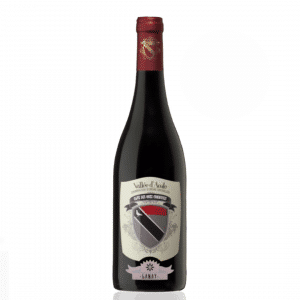
Cave des Onze Communes Gamay 2020
12,70 €11,70 € -
Promo
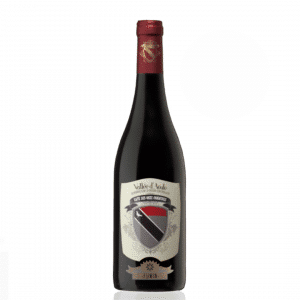
Cave des Onze Communes Fumin 2021
13,00 €11,70 € -
Poggio Trevvalle Capocuore 2021
17,90 € -
Promo
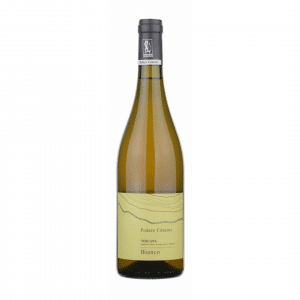
Podere Concori White 2022
20,90 €19,70 € -
Promo
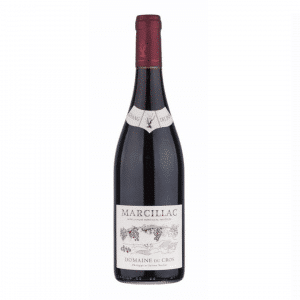
Domaine du Cros Marcillac Lo Sang del Pais 2020
15,80 €14,80 €
Environment and Sustainability
Chemistry in the vineyard is not only harmful to man but also to the environment.
If you choose to drink conscientiously you will also protect the environment.
In Italy one third of agricultural product samples are contaminated with residues of more than one type of pesticideThis means that even if the individual pesticide is within the limits of the law (yes, there is a law that still allows its use in 2021), the sum of them is not.
They contaminate one-third of waters, killing entire ecosystems of fish and amphibians. They cause deaths of pollinating insects such as bees and bumblebees.
Soil polluted in this way also causes damage to the animals that farm it, the same animals whose products end up on our tables.
Unfortunately, Italy is the first country in Europe for the use of chemicals in the vineyard with a quantity equal to that of Germany and France together.
It is our duty to demand a healthier environment. Sustainable viticulture.
Some of the information I've given you isn't reassuring but someone had to point it out.
You deserve a prize now!!
Natural Wine, the 5 reasons
You've come this far, you're beginning to have doubts, so here are the 5 reasons why you won't want to drink any more!
- Natural wine doesn't contain chemicals that are harmful to your health, I'm not saying you can drink it like there's no tomorrow, but certainly a few extra splurges are allowed.
- Natural wines normally come from grapes that ripen polyphenolically earlier and this allows a more moderate subsequent alcohol extraction in many cases. Less alcohol means less sugar and fewer carbohydrates.
- They are excellent, both on the nose and in the mouth. Don't stop at clichés, most of them aren't really wines that spoil after a few years, you can find some that are sensationally long-lived.
- They respect not only your health, but also your wallet, in the mid-range they cost much less than their conventional counterparts.
- They are handcrafted products, cared for and loved from birth to bottling. They are characterized by high quality and low quantity, diametrically opposed to the 80% products you find on the market.
I have good news for you, on Apewineboxes you will find hundreds and hundreds of labels of artisanal and natural wine, carefully selected by our tasting team. If you register you get a discount code of 10%
Try also our Wine Boxes, designed to fulfil your every wish, your every need.
-
Promo
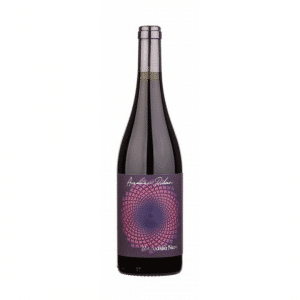
Andrea Pilar Malvasia Nera 2021
14,50 €13,50 € -
Promo

Posapiano Grace Slave to Love N.M.
24,50 €22,90 € -
Promo
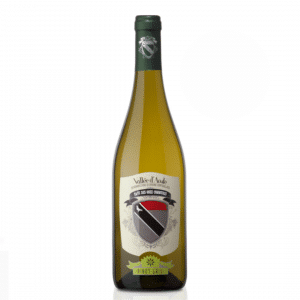
Cave des Onze Communes Pinot Gris 2019
12,20 €11,20 € -
Promo
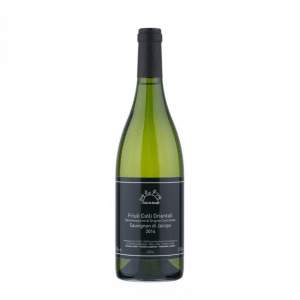
Necotium COF Sauvignon by Jacopo 2022
15,90 €14,70 € -
Promo
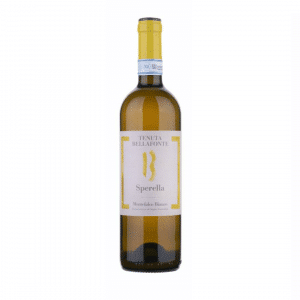
Bellafonte Bianco Sperella 2022
15,90 €14,70 €
Vinho Verde, the gold of Portugal
by Alessio Petito Vinho Verde is not really Verde! Portugal is a country with a strong wine vocation, with many different wine-making styles, the most curious of which is Vinho Verde, which is produced in the northernmost province, Minho. One should not think of it as a green wine because of the addition of colouring agents.
Wine and Sulphites, the ultimate guide
by Alessio Petito Wine and Sulphites, I answer all the questions In this article I answer all the questions I am normally asked regarding the topic of wine and sulphites. First, however, a small introduction on what sulphites are and the side effects they can cause to those who consume them.

